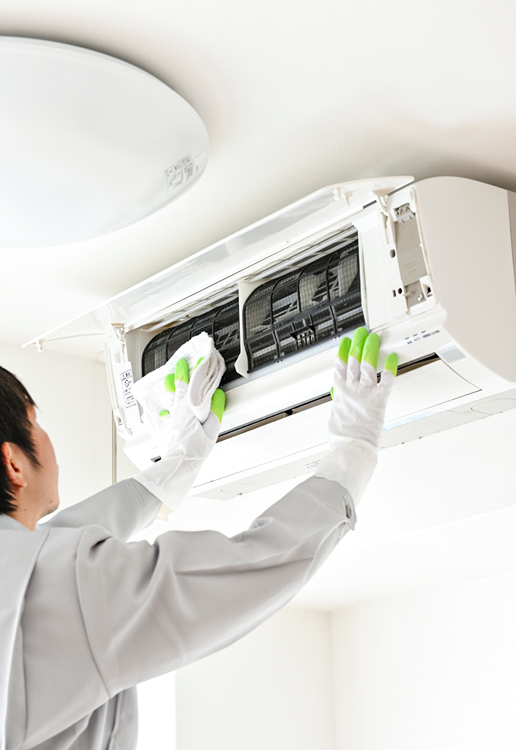What HVAC System Is Good For Tucson Arizona
When it comes to the hot, dry climate of Tucson Arizona, selecting an HVAC system is a critical decision. With temperatures routinely reaching triple digits in the summer months and dipping down into freezing temperatures during winter nights, having an efficient heating and cooling system can make all the difference for staying comfortable throughout the year.
The first step in assessing and choosing an appropriate HVAC system for Tucson residences is to understand the unique climate of Arizona’s second largest city. The Sonoran desert environment gives rise to a wide range of temperature fluctuations between day and night that require special consideration when designing a home’s heating and cooling solution.
Additionally, air quality must also be taken into account as dust storms frequently enter from nearby deserts while monsoon season brings humid conditions into play each summer. All these factors have direct impacts on how well any given HVAC system performs in Tucson climates over time.

Definition Of HVAC
HVAC (Heating, Ventilation and Air Conditioning) is a system that provides temperature control through the regulation of air flow within an enclosed space. It consists of heating, ventilation and cooling components which are integrated to create a unified climate-control system.
The main purpose of HVAC systems is to regulate indoor air quality by controlling humidity, airborne particles, as well as airflow rate and direction. In addition, HVAC systems can also be used to maintain desired temperatures in buildings or other large areas.
The type of HVAC system chosen for any particular application depends on the size and layout of the area being equipped with it. Furthermore, consideration must be given to local weather conditions such as extreme heat or cold when selecting an appropriate system.
To ensure maximum efficiency from an installed HVAC unit, regular maintenance should be performed regularly according to manufacturer’s guidelines.
Climate Considerations For Tucson, Arizona
Climate is an important factor to consider when selecting an HVAC system for Tucson, Arizona. It has a hot desert climate with long and very hot summers that can exceed 100 degrees Fahrenheit (38°C). Winters are mild but dry, with temperatures rarely dropping below 30 degrees Fahrenheit (-1°C).
Consequently, any HVAC system installed in the area should be able to handle extreme temperature swings throughout the year.
The most suitable type of HVAC system for such climates would include energy-efficient systems, such as geothermal heat pumps or air source heat pumps. In addition, evaporative coolers may provide some relief from the summer heat if properly sized and maintained.
Air conditioning units must also have high Seasonal Energy Efficiency Ratio (SEER) ratings to maximize efficiency during the warm months. Finally, it is recommended to utilize zoning technology so each room can be set at different temperatures according to its use and occupants’ needs.
Types Of HVAC Systems
In Tucson, Arizona, it is important to select an HVAC system that will meet the climate and environmental needs of the area. The two most common types of systems for this region are heat pumps and air-conditioning units.
Heat pumps work by transferring heat from one place to another. They can be used in both summer and winter months as they provide cooling on hot days and heating on cold nights.
Heat pumps are energy efficient since they do not require additional fuel sources such as gas or electric power like other traditional heating systems.
Additionally, they have a longer life span compared to other options and require less maintenance than conventional models due to their low operating costs.
Heat conditioners use refrigerants to cool air before cycling it through ducts in homes or buildings. This type of system works best during extreme temperatures as it offers maximum efficiency in maintaining desired indoor temperature levels even when outside temperatures exceed 100 degrees Fahrenheit.
Air conditioning units also come with various features to make them more energy efficient including adjustable fan speeds, programmable thermostats, zoning controls, and variable speed compressors.
Both heat pumps and air conditioning systems offer exceptional benefits for homeowners living in areas where the weather conditions vary significantly throughout the year such as Tucson, Arizona. Both HVAC solutions provide reliable performance while delivering improved comfort levels at an affordable price point.

Pros And Cons Of Different Systems
Tucson, Arizona is a hot and dry climate with plenty of sunshine throughout the year. The most appropriate HVAC system for this region would be an evaporative cooler or “swamp cooler”. Evaporative coolers are great for cooling large spaces in desert climates as they use much less energy than traditional air conditioning systems while still providing effective cooling. They also often come at lower cost than other cooling methods and can even be installed by homeowners themselves with relative ease.
On the downside, evaporative coolers require regular maintenance to keep them running efficiently, including regularly changing the water filter and keeping it free from debris.
Additionally, these units need access to fresh air so windows must be opened when it is operating; otherwise, it may not work properly. Furthermore, since humid air does not evaporate quickly in Tucson due to its already dry conditions, swamp coolers are not very efficient during times of high humidity.
Energy Efficiency Ratings For Tucson, Arizona
The HVAC system best suited for Tucson, Arizona should have a high energy efficiency rating. The United States Department of Energy (DOE) assigns ratings to HVAC systems based on several factors including the Seasonal Energy Efficiency Ratio (SEER).
Most residential air conditioning units sold in Tucson must have a minimum SEER rating of 14 since this is the standard set by DOE’s federal regulations.
In addition, homeowners should look for other features that will improve their energy efficiency such as variable speed blowers and two-stage compressors. Variable speed blowers can help reduce temperature fluctuations while two-stage compressors are designed to use less energy when cooling needs are low.
Cost Of Installing An HVAC System In Tucson, Arizona
In Tucson, Arizona, the cost of installing an HVAC system will depend on several factors. The size and type of unit needed to adequately heat or cool a home are important considerations when determining installation costs.
Additionally, some homes may require additional ductwork or electrical work that can add to the overall expense. For example, if a new air handler is required in addition to the outdoor condenser, this could increase the total price significantly.
Tucson enjoys mild temperatures throughout much of the year and many homeowners opt for energy efficient systems such as geothermal heating and cooling units. These types of systems provide reliable operation with low maintenance requirements while offering high efficiency ratings and long-term savings due to lower utility bills.
They often have higher upfront costs than conventional systems but they are typically more affordable over time since their operating costs are much less than traditional gas or electric models.

Maintenance Requirements For Optimal Performance
When considering an HVAC system for Tucson, Arizona, maintenance is key to ensuring optimal performance. In this hot and dry climate, air conditioning units are prone to frequent breakdowns due to a lack of humidity in the air which can cause components like coils and condensers to become clogged with dust particles leading to overheating or freezing up.
Regularly scheduled maintenance helps keep these parts clean and ensures that they continue to operate at peak efficiency. Additionally, it is important to check all seals, filters, ductwork, insulation levels, and refrigerant pressures on a regular basis as any deterioration in these components could lead to increased energy costs from inefficient operation.
The other component of maintaining an HVAC system is installing a smart thermostat to control temperature. During summer months, temperatures often reach triple digits so it’s important that your thermostat settings be adjusted accordingly.
Otherwise, you may end up overworking your unit or wasting cooling power by running it too long when not needed. While some people may opt for additional features such as timers or sensors on their systems for further efficiency gains, simply having consistent settings will go far in keeping your home comfortable and help reduce energy bills over time.







